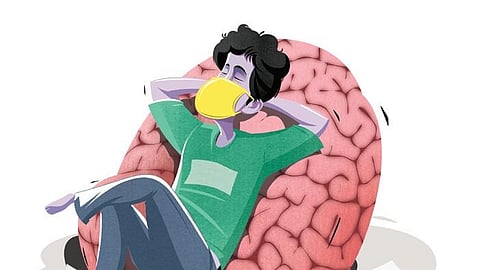

KOCHI : Dr Naveen Thacker, president of the International Pediatric Association, was in Kochi to take part in PEDICON, the annual conference of the Indian Academy of Pediatrics. He talks to TNIE on the challenges to children’s health in the post-COVID scenario, impact of social media on their mental health, and role of awareness and regulation in creating a better environment for them.
Q. Malnutrition used to be viewed as a challenge to children’s health. Now, talk is about overnutrition and obesity. How do you see the shift and its effect on kids?
A. As South Asians, our genes are adapted for starvation. Famines ensured that. Now, we have food available everywhere. Children’s lives have been unsettled by aggressive marketing of ready-to-eat food, inactivity, social media, and climate change. These can even lead to mental health issues. This generation of parents needs to make more time for their kids, for their wellbeing.
Q. Suicide rates among children are on the rise. What is causing this? Is this a post-Covid trend?
A. Suicidal tendencies are a crucial component of mental-health issues. Tolerance levels among children have declined. They are now not ready to accept ‘no’ for an answer. The value of life and discipline are unknown to them. Lack of social interaction is a key cause. Working parents allow their children to spend large amounts of time watching cartoons and online. Because of the virtual environment that this induces, they have become adamant and aggressive. It affects their overall development. In the post-pandemic scenario, neurological and developmental problems, including autism, are on the rise among children.
Q. How do we tackle the situation?
A. Our approach should be comprehensive. We need to act at multiple levels. At the structural level, we need to ensure that social media is not doing damage. Rules and regulations can prevent companies from spreading false messages and misleading advertisements. Technology can be used to set screen times and alert kids to routines.
It is most important to raise awareness among schoolchildren. Specially designed curriculums can play a part. Once they are aware of the damage caused by social media and unhealthy lifestyles, they can influence their siblings. The community and governments should also adopt initiatives to create awareness among children. Moreover, parents should know that scolding doesn’t help and children should be treated with utmost respect.
Q. The number of children diagnosed with diseases such as fatty liver, cancer and even rare diseases has increased. What is the reason?
A. One factor is increased awareness. With more awareness and facilities, we have improved testing and diagnosis. Apart from genetics, multiple factors such as pollution, climate change poisoning, and in vitro fertilisation also play a role.